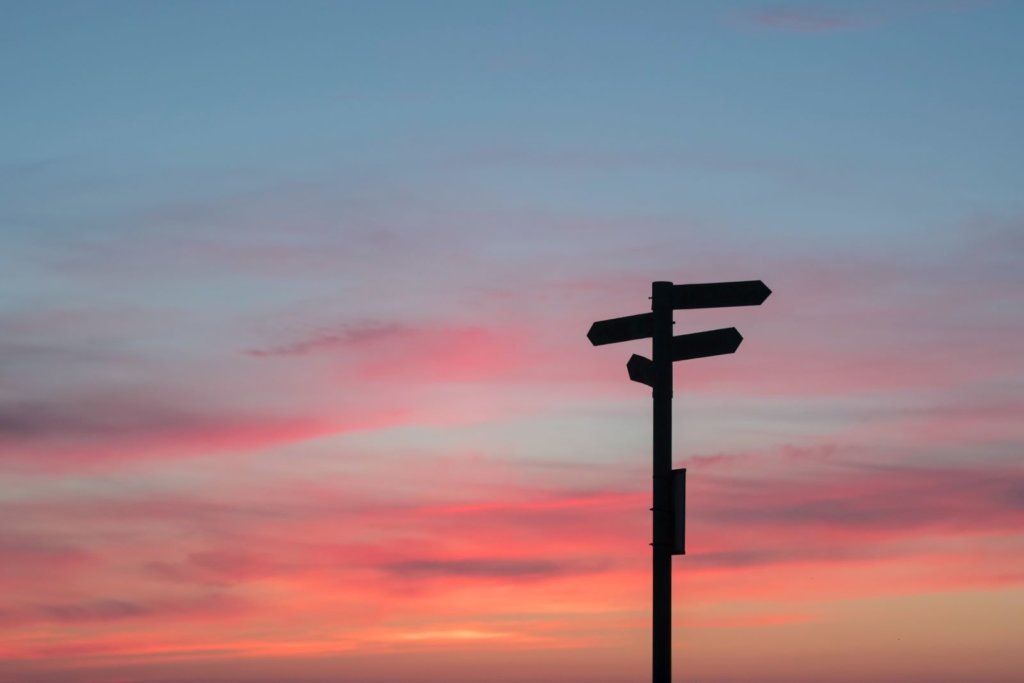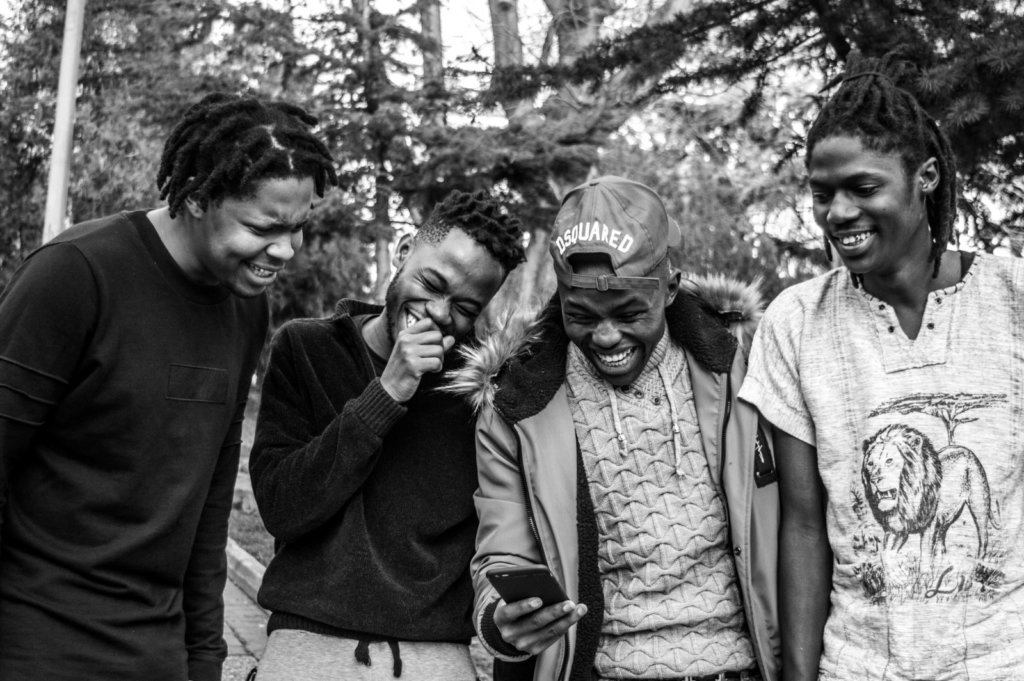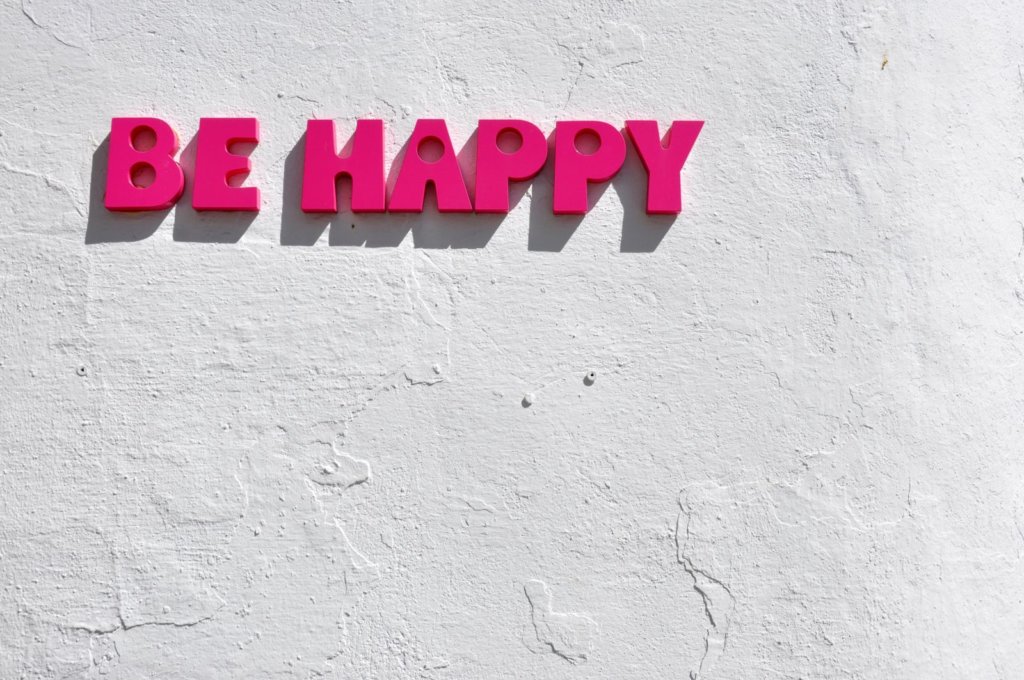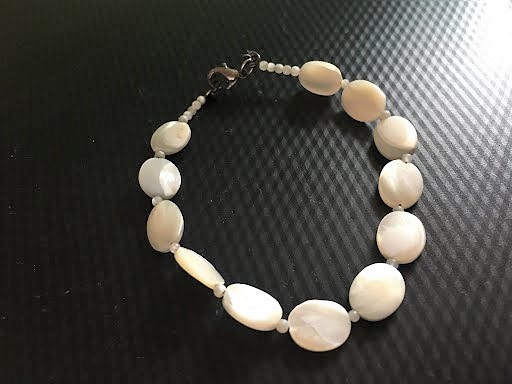As I continue to grapple with the death of a friend and beloved member of my community who died from COVID-19 due to not being vaccinated, I keep thinking about a twist on an Al-Anon phrase: “Give people the dignity of their choices.” As you know, there is nothing more controversial, more hot-button, more likely to cause a debate than COVID-19 vaccines in the age of this pandemic. I’m not telling you anything new. You’ve likely witnessed this debate or had it yourself.
Each camp – the vaccinated and unvaccinated – staunchly argues their case. Each camp cites information, tries to convince the other, justifies their own choices, but I’m not sure how much good it’s doing. My friend that died knew the facts. He knew more unvaccinated people than vaccinated are dying of COVID, are filling hospital beds, and yet he chose to “trust his immune system.” He decided to gamble that he would be fine if he contracted COVID-19. He wasn’t fine and yeah, I’ve been angry about it, sad about it, but ultimately, it wasn’t my choice. It wasn’t my decision to make. Me? I chose differently. But here’s what Al-Anon taught me: There comes a point where we all have to recognize we can’t force people to do something they don’t want to do.

Let people make their choices. Photo by Javier Allegue Barros on Unsplash
In the world of Al-Anon, which is a program for friends and family members of addicts, they learn there is no secret formula that convinces an addict to stop using. They know it doesn’t matter how many tears, how much literature, how much pleading they do with the addict in their life, they can’t force the addict to quit. They are not in control of the addict’s choices. Granted, they don’t have to stand by and watch the addict head to an early grave either, but there’s a point where they understand what it means to be powerless.
Powerlessness over other people seems like something we’re all learning right now. Is forcing people to get vaccinated helping? Or instead, are healthcare workers quitting over vaccine mandates? What exactly are vaccine mandates accomplishing? In the U.S., it’s helping a little, but it’s also sparking lawsuits and public outcry. It seems to me some people feel oppressed because their choices are not being honored.
Do I wish everyone who is able to get vaccinated does so? Of course I do. But at this point I’m recognizing not everyone will because they haven’t. And instead of shouting at them until I’m blue in the face, I’m taking a page from Al-Anon and letting people have the dignity of their choices. It’s hard, it’s heartbreaking, it feels like graduate-level spiritual work, but these are the times we’re living in.
Ultimately, I want to feel peace and if I’m hopped up on righteous indignation, there ain’t no peace to be had. What brings me peace is recognizing I’m doing what I need to do to protect myself – I’ve been boosted, I’m wearing a mask, social distancing, etc. – but the only person I can take care of is me. Instead of saying, “I’m right and you’re wrong,” how can we create space for everyone to have the dignity of their choices? Because truly, that’s the reality of the world we live in.
As for me, when I allow my friend the dignity of his choice, instead of being filled with resentment over his death, I think of him fondly. I remember his bright smile, the love he had for his son, and his willingness to pitch in wherever he could. And that’s what I’d much rather focus on.
I dream of a world where we support people in making informed choices while also recognizing we aren’t in control of those choices. A world where we make space for disagreement. A world where we let people have the dignity of their choices even if we wouldn’t make them ourselves.
Another world is not only possible, it’s probable.
If you’re anything like me, you’ve heard something to the effect of, “It only takes one person to feel grounded and safe in a crowd to change the atmosphere for everyone else.” It’s a nice sentiment, but is it just a bunch of hokey-pokey b.s.? Can little ole me really have that kind of effect on other people? It turns out, yes.
Emotions are contagious just like colds and scientists think this “emotional contagion” is due to the mirror neuron system. Essentially, when you do something yourself and watch someone else do that exact activity, the same neurons are firing, aka, mirror neurons. Pretty cool right? So how then do emotions catch on? According to this article in Healthline, it happens in three stages: mimicry, feedback, and experience.
Mimicry is just what it sounds like: mimicking someone else. If I smile at you, chances are you’re going to smile back at me. However, typically your reaction is not conscious. It’s happening automatically. But that mimicry has a ripple effect and creates feedback in the brain and body. For instance, if you’re mimicking my smile, even if originally you felt cranky, just by smiling, you’ll feel happier. And that feedback will create a response in you so that you actually are feeling happier. That’s the experiential part of emotional contagion. You mimicked me, created feedback for yourself, and thus “caught” the emotion I’m expressing.

I don’t know about you, but looking at these folks makes me smile! Photo by Siviwe Kapteyn on Unsplash
What fascinates me about this process is not only the one-on-one contagion, but also the group contagion. We see this with mob mentality, or herd mentality when people are influenced by their peers to adopt a behavior or viewpoint on a largely emotional basis. What we’re all creating is a collective mind. We’re syncing our minds up and this happens whether we want it to or not.
The question then becomes, what to do about that? My spiritual teacher says, “The collectivity is yours. The collectivity is not outside you – your future is inseparably connected with the collective fortune. You must take the entire collectivity with you and move toward the sweetest radiance of the new crimson dawn, beyond the veil of the darkest night.”
Later on, he says, “Now, changes will have to be effected in the mental flow of this collective mind; you will have to create a new wave of thought in it. Because of the manner of human thinking thus far, the pace of human progress has been painfully slow. If it is given a new direction, the speed of progress will be greatly accelerated.”
Frankly, I’m all for moving toward the sweetest radiance of the new crimson dawn and accelerating the speed of human progress. And that means how I feel, how I act, matters. How you interact with other people has an impact. It transmits something and together we create something that wouldn’t have been there before. We are each contributing to a collective mind. But what are we contributing? Is it something that will move humanity forward to a state of equity, justice, love, and respect? Or is it something that creates more discrimination, inequality, and division? Knowing about emotional contagion, what will you choose?
I dream of a world where we recognize how we feel, what we express really does matter. A world where we allow ourselves to be authentic, but also understand we affect and even infect those around us. A world where we are conscious about what we’re contributing to the collective mind because we understand emotional contagion is real.
Another world is not only possible, it’s probable.
The cool thing about having a blog for so long is that sometimes things I wrote in the past are applicable to my life today. That happened to me this week when I reread a post from almost exactly 12 years ago. My life is significantly different now – I no longer work at an office job in San Francisco, for instance – but other aspects are the same, and the message in this blog is just what I needed to hear. I hope that’s true for you too.
I often think I’ve missed the boat in life. That what I want can’t happen because the opportunity passed me by. Or maybe I screwed it up. If I hadn’t said XYZ, then I’d have what I want. If I hadn’t made that one mistake, things would have worked out differently. But is that really true?
In 2007 when I worked in Washington, D.C., my coworkers had a Mother’s Day jewelry sale. I went looking for a gift for my mom and passed by a mother-of-pearl shell bracelet with a T-bar and circle clasp. I didn’t think my mom would like it, plus I don’t like buying parts of animals, so I went back to my cubicle empty-handed. But I kept thinking about the bracelet. I wanted it – not for my mom, but for me. I rushed back upstairs and purchased it (and said a prayer for the mollusk who died to give it to me).
Shortly thereafter I went to a WNBA game with a friend of mine. When the game ended and we started walking toward the exit, I looked down at my wrist and realized my bracelet was gone. (The bracelet is a little bit too big for me and so the T-bar has a tendency to slip from the clasp.) I started searching around me in a panic, checking my pockets, my sleeve, the ground. I retraced my steps, went back to the bathroom to see if it had fallen on the tiles. I scanned the crowded hallway and couldn’t find it. My friend and I went back to our seats and there it was, on the cement, directly below where I was sitting.
Yesterday, while I sat at my desk at work, one of my coworkers came up to me with my bracelet dangling from his fingers and asked, “Is this yours?” I hadn’t even realized I lost it but nonetheless, my bracelet found its way back to me. And then last night on my walk to the chiropractor from work, I realized I lost my bracelet again! I scanned the pavement; I kept my eyes trained on the ground for six blocks searching to no avail. I probably lost it somewhere on my mile walk from work to my apartment. I couldn’t check the office either because today I work from home so I called one of my coworkers and asked her to keep an eye out for it.
What are the odds I will find it? It could have fallen off anywhere. Someone else could have picked it up; it could have been thrown away by someone sweeping the sidewalks. It could have fallen into a sewer grate. In all likelihood my bracelet is gone.
This morning I went to the basement to do some laundry and I looked at the windowsill in the stairwell. Lo and behold, there was my bracelet, waiting for me! (Side note, since this post was first written, I changed the clasp on my bracelet to a lobster claw so it doesn’t keep slipping off.) Of all the places it could have been, of all the possibilities, my bracelet found its way back to me. Some things seem completely illogical, unreasonable, and far-fetched, but if they’re meant to be, they will happen. If you’re meant to have something, you will. In other words, if it’s yours, it’s yours.
I dream of a world where we trust the universe. A world where we shoot for our dreams with full force knowing if it’s meant to be, it will happen. A world where we know magic is real and the impossible is possible. A world where we understand if it’s ours, it’s ours.
Another world is not only possible, it’s probable.
Have you heard the expression, “Expectations are premeditated resentments?” I wouldn’t say that’s wholly true for me because my expectations aren’t about other people, but they have certainly been premeditated disappointments. For instance, I woke up on the morning of my most recent birthday and cried because I’m not at all where I thought I’d be at this age. Yes, the big things like married, but also I thought by this age I’d be living in a more spacious apartment and have signed a literary agent. But I haven’t.
Every year I inflict this kind of disappointment on myself. I make a goal where I say, “By this time next year I’ll ______.” And then inevitably what I set out to achieve doesn’t come to pass because I’m not in control of every aspect of my life. If we’re using the theater metaphor that all the world’s a stage and we’re merely players upon it, I’m instead operating under the assumption I’m the director. As the director, I have a say in what happens upon the stage, but as much as I’d like to be the director, I was cast as an actor. And that means it doesn’t make sense to have expectations for how my future will unfold.

I would like to follow this command. Photo by Alex Block on Unsplash
Having a goal is great, but setting a timeline is not. How can I possibly predict what will happen in the future? I can’t. That’s also the chief complaint of every crowd-funded campaign I’ve ever backed. The creator sets up a timeline and says, “You’ll receive your water pitcher in six months,” or whatever and when that time comes and goes, people get angry and impatient. The timing is almost always off because the creator ran into unforeseen circumstances. It’s the same for me — I’m forever running into unforeseen circumstances.
What if instead of giving goals a deadline, I work toward them and just let my life unfold? What if instead I accepted and enjoyed what’s here, now? Jodi Picoult speaks to this in her novel Nineteen Minutes when she writes, “There were two ways to be happy: improve your reality, or lower your expectations.”
I already work incredibly hard to improve my reality so maybe now is the time to lower my expectations, or better yet, not have any at all. What’s funny is when I googled how to do that, much of the search results focused on lowering expectations in regards to other people and not much about lowering the expectations a person has for themselves. I suspect that because in the U.S. anyway, we have high expectations for ourselves. We believe if we dream it, we can achieve it and on our timeline to boot. You just have to think positively! Create a vision board! Hire a life coach! That all has a place, but so does something every spiritual teacher talks about: surrender.
My spiritual teacher says, “Human beings and other created beings perform a multitude of actions. The ultimate action, however, is … total surrender.” Total surrender means aligning my will with higher power’s will. Total surrender means recognizing I am an actor in this world, not the director. Total surrender means no longer placing expectations upon myself for when something will be accomplished because that only sets me up for disappointment and this year my goal instead is to be happy.
I dream of a world where we remember the recipe for happiness is to improve our reality or lower our expectations. A world where we remember we are the actors upon the stage of life and not the directors. A world where we understand in order to truly feel happy, we have to let go and enjoy what arises when it arises.
Another world is not only possible, it’s probable.
